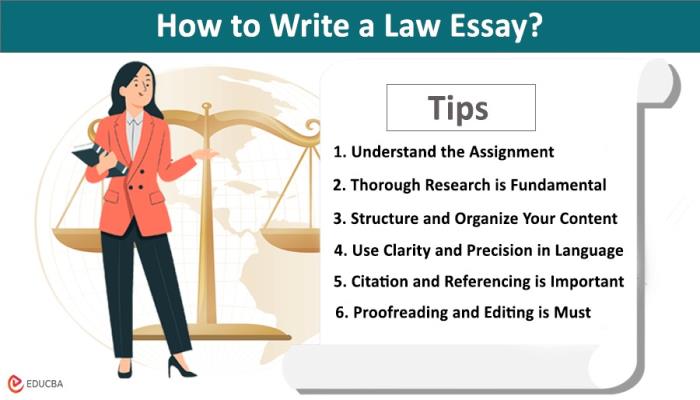How do you write a law essay

Crafting a compelling law essay requires finesse, precision, and a deep understanding of legal principles. Whether you’re a seasoned law student or just starting your journey into legal academia, mastering the art of law essay writing is essential for success. In this comprehensive guide, we’ll delve into the key steps and strategies to help you navigate the intricate world of legal writing with confidence and proficiency. Ukwritings helps with law essays, offering valuable resources and expert guidance to support you in your academic endeavors.
Understanding the Assignment Prompt
Before starting writing, it’s crucial to thoroughly grasp the assignment prompt. Take the time to dissect the question, identifying keywords, legal concepts, and any specific instructions provided by your professor. Pay close attention to the scope of the essay, whether it requires a critical analysis of case law, a discussion of statutory interpretation, or a comparison of different legal theories. By understanding the nuances of the prompt, you can tailor your research and argumentation to meet the expectations of the assignment. Best paper writing services like Ukwritings offer assistance in deciphering complex prompts and crafting well-researched, impeccably written essays that adhere to academic standards.
- Break down the assignment prompt into key components.
- Identify keywords and legal concepts to guide your research.
Conducting Thorough Research
Research forms the foundation of any successful law essay. Dive deep into primary sources such as case law, statutes, regulations, and legal journals to gather relevant information and precedents to support your arguments. Utilize online databases, library resources, and academic journals to explore different perspectives and viewpoints on the topic. Take comprehensive notes, citing sources meticulously to avoid plagiarism and ensure accuracy. Remember to critically evaluate the credibility and reliability of your sources, prioritizing peer-reviewed articles and authoritative legal texts.
- Explore primary and secondary sources to gather evidence.
- Evaluate the credibility and reliability of your sources.
Crafting a Strong Thesis Statement
A compelling thesis statement serves as the cornerstone of your law essay, articulating the central argument or perspective you’ll be defending throughout your paper. Your thesis should be clear, concise, and debatable, providing a roadmap for the reader to follow your line of reasoning. It should encapsulate the main points you’ll be addressing in your essay while leaving room for exploration and analysis. Take the time to refine your thesis statement through brainstorming, outlining, and revising until it accurately reflects the core argument you intend to make.
- Develop a clear and debatable thesis statement.
- Ensure your thesis provides a roadmap for your essay.
Structuring Your Essay Effectively
Effective structuring is essential for conveying your ideas cohesively and persuasively in a law essay. Start with a concise introduction that provides context for your topic, presents your thesis statement, and outlines the structure of your essay. Organize your main body paragraphs logically, with each paragraph focusing on a distinct argument or aspect of your topic. Use topic sentences to guide the reader through your points and provide smooth transitions between paragraphs. Finally, craft a succinct conclusion that summarizes your key arguments, reinforces your thesis, and offers insights or recommendations for further consideration.
- Create a clear and logical structure for your essay.
- Use topic sentences to guide the reader through your arguments.
Writing with Clarity and Precision
In legal writing, clarity and precision are paramount. Use clear and concise language to convey your arguments, avoiding unnecessary jargon or complex terminology that may obscure your meaning. Define key terms and concepts to ensure your reader understands your arguments and conclusions. Support your points with evidence and examples, drawing on relevant case law, statutes, and scholarly articles to bolster your analysis. Pay attention to the organization and flow of your sentences and paragraphs, using transitions and signposts to maintain coherence and readability.
- Use clear and concise language to convey your arguments.
- Define key terms and concepts for clarity.
Editing and Proofreading
The final step in crafting a stellar law essay is editing and proofreading. Take the time to review your essay carefully, checking for grammatical errors, punctuation mistakes, and typos. Ensure consistency in formatting, citation style, and referencing throughout your paper. Consider seeking feedback from peers, professors, or writing tutors to gain fresh insights and perspectives on your work. Revise your essay iteratively, refining your arguments, tightening your prose, and polishing your writing until it shines.
- Review your essay for grammatical errors and typos.
- Seek feedback from peers or professors for additional insights.
In conclusion, writing a law essay is a multifaceted process that requires diligence, critical thinking, and attention to detail. By understanding the assignment prompt, conducting thorough research, crafting a strong thesis statement, structuring your essay effectively, writing with clarity and precision, and editing meticulously, you can elevate your legal writing to new heights. With practice and perseverance, you’ll develop the skills and confidence needed to excel in the realm of legal academia. So, embrace the challenge, hone your craft, and let your passion for justice and the law shine through in your writing.



